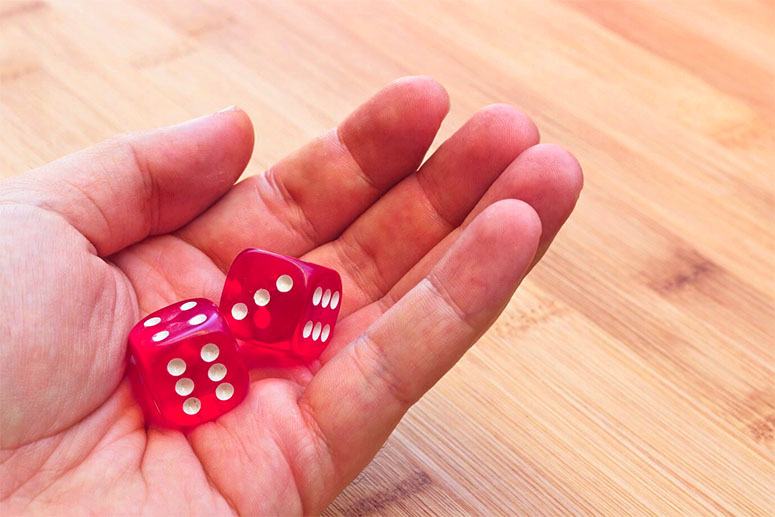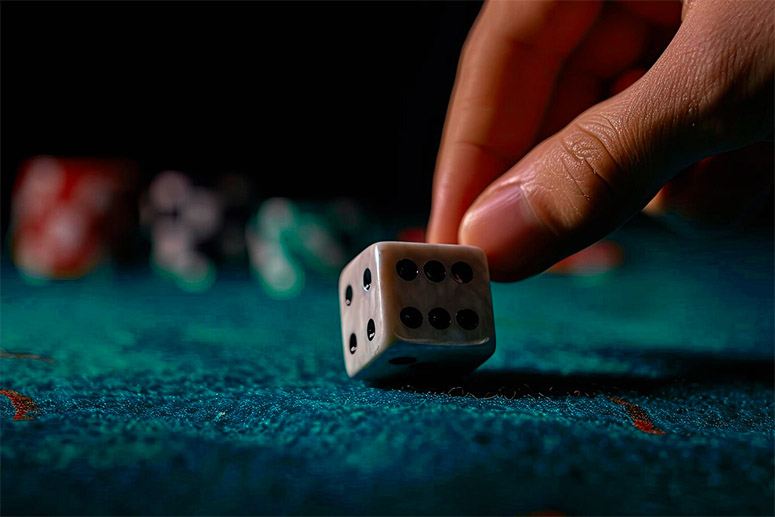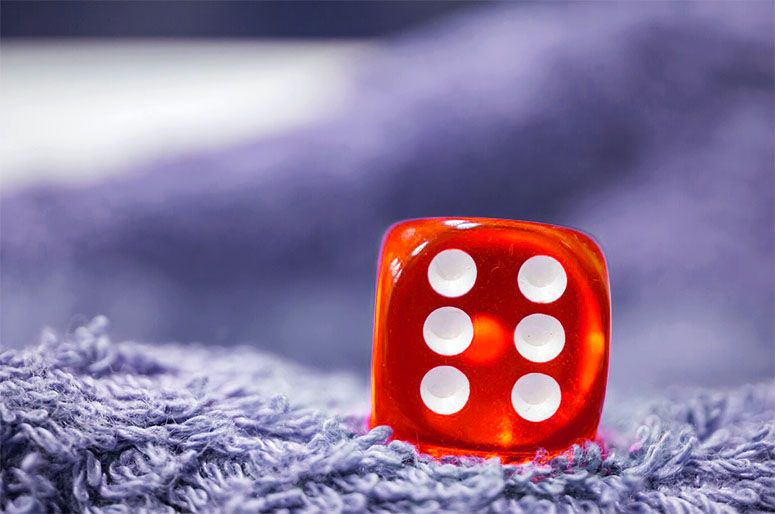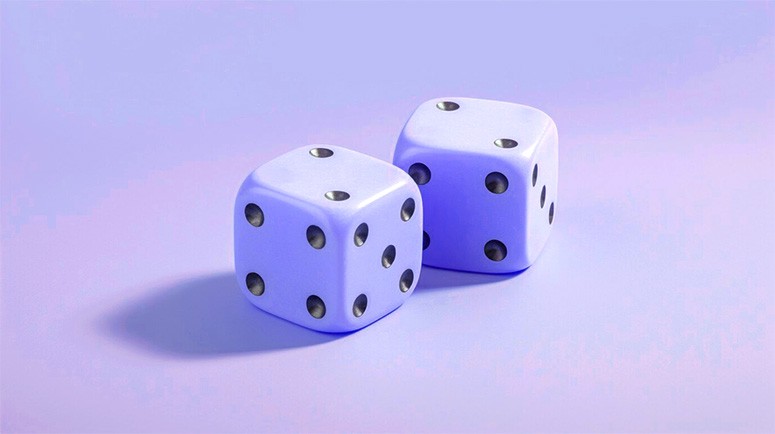Contents
Dice rolling is a staple in countless games and activities, adding an element of chance and excitement to the mix. One particularly intriguing aspect is the probability of rolling doubles.
Have you ever wondered, “What are the odds of rolling doubles?” or how many combinations can result in this outcome? This article delves into the world of dice, explaining what doubles are, calculating their odds, and offering tips to enhance your chances.
Whether you’re a seasoned gamer or simply curious about dice mechanics, you’ll find valuable insights here.
Understanding dice rolling
Understanding dice rolling is fundamental to various games, especially in tabletop gaming and gambling, where the act of rolling two dice introduces a layer of randomness and chance that can significantly influence the game’s outcome.
The mechanics behind rolling dice involve probability theory, which allows players to analyze potential outcomes, combinations, and the odds associated with each roll. For example, many players are keen to understand what are the odds of rolling doubles, as this can greatly impact their strategies and decisions.
This randomness can be quantified using statistics, offering insights into the average outcomes and frequency of different events, thereby shaping gaming strategies for a fair and enjoyable experience.
What are doubles?
Doubles occur when both dice show the same number after rolling, which is a significant event in many dice games that can lead to enhanced outcomes and scoring opportunities.
This dual outcome can happen when two identical dice are rolled, resulting in a combination of two sixes, which often has special implications in games like Craps or Yahtzee.
Understanding what are the odds of rolling doubles helps players evaluate their chances and adjust their strategies accordingly. In many games, rolling doubles not only adds excitement but also alters the flow of play, allowing players to take extra turns or score bonus points.
For instance, in Monopoly, rolling doubles grants players an additional turn, which can lead to crucial opportunities to advance on the board.
This emphasizes the need for players to grasp the significance of combinations and the resulting outcomes when rolling dice, as such knowledge can influence their overall game strategy.
By recognizing patterns in dice rolls, players can make more informed decisions and potentially enhance their chances of winning.
How many combinations can result in doubles?

When rolling two identical dice, there are a limited number of combinations that can result in doubles, specifically six distinct outcomes, which include:
- (1,1);
- (2,2);
- (3,3);
- (4,4);
- (5,5);
- (6,6).
Each of these combinations reflects an event occurrence that has an equal likelihood of happening, demonstrating the fairness and randomness inherent in rolling dice.
For players, knowing what are the odds of rolling doubles is essential for assessing their winning probabilities and formulating effective gaming strategies.
What is the probability of rolling doubles on a single die?
The probability of rolling doubles on a single die is an intriguing concept, as a single die cannot yield doubles by itself – however, the probability of achieving a specific number is 1 in 6, given that a die has six faces.
This realization leads to discussions about the odds ratio when rolling multiple dice, particularly when assessing outcomes in conjunction with the mechanics of rolling two dice.
Understanding this probability lays the groundwork for deeper explorations into game theory and statistical analysis.
When two dice are rolled, there are a total of 36 possible outcomes, as each die offers six different values.
To roll doubles, both dice must show the same number, which can occur in six distinct ways (1-1, 2-2, 3-3, 4-4, 5-5, or 6-6).
Thus, the probability of rolling doubles is calculated as \( \frac{6}{36} \) or simplified to \( \frac{1}{6} \).
This means for every roll of a pair of dice, there is a 16.67% chance of landing doubles, offering valuable insights into both casual and competitive gaming scenarios.
What is the probability of rolling doubles on two dice?
When rolling two dice, the probability of rolling doubles is calculated by considering the total possible outcomes, which is 36, and knowing that there are 6 successful outcomes that result in doubles.
Thus, the probability of rolling doubles can be expressed as 6 in 36, simplifying to 1 in 6, aligning with the principles of probability theory and expected value calculations.
This understanding helps players evaluate their win probability and strategize their moves during gameplay.
By analyzing these probabilities, enthusiasts can grasp the underlying odds and make informed decisions based on the statistical likelihood of various outcomes.
For instance, when considering the expected value of betting on doubles, it becomes clearer how much one can anticipate winning over time versus potential losses.
This blend of odds comprehension and statistical analysis not only enhances gameplay strategies but also enriches the overall experience, as players develop a deeper appreciation for the mathematical dynamics at play in their rolls.
What is the probability of rolling doubles on three dice?
The probability of rolling doubles when using three dice introduces more complexity to the analysis of outcomes, as players can achieve combinations where two dice show the same number while the third die shows a different one.
Calculating the probability of this event requires understanding the total combinations possible with three dice, which amounts to 216, and identifying the specific successful outcomes that result in doubles.
This statistical insight is critical for players looking to grasp the nuances of game mechanics in dice-based games.
To fully grasp the implications, it is essential to delve into the various scenarios that can arise. For instance, if players roll a pair of twos and a three, they are achieving a double, which is one of the several successful outcomes.
By analyzing such combinations, one can see how rolling doubles doesn’t just depend on luck but also on a strategic understanding of probability.
This understanding aids players in making more informed decisions during games, where the potential for doubles can significantly affect their odds of winning or achieving specific goals.
What are the odds of rolling doubles?
The odds of rolling doubles in games utilizing dice are a critical aspect of gameplay and strategy, as they directly inform players about the win probability associated with various outcomes.
Understanding that the odds of rolling doubles with two dice are 1 in 6 allows players to make informed decisions when placing bets or strategizing during gameplay.
This statistical analysis of game mechanics is central to the essence of gambling, where players seek to maximize their chances of success while minimizing risk.
For instance, if a player is aware that rolling doubles not only grants them an additional turn in many games but can also lead to significant wins, they can adjust their betting strategy accordingly.
By assessing the probability of hitting those doubles during critical moments, players can obtain a tactical advantage.
Understanding the underlying statistics can help in estimating payout ratios and guiding overall betting behavior, whether in casual play or high-stakes gambling scenarios.
This knowledge ultimately equips players with the tools they need to navigate the often unpredictable world of dice games.
How can you increase your chances of rolling doubles?

Increasing the chances of rolling doubles can be an exciting objective for players, as there are several strategies that can enhance the likelihood of achieving this outcome during gameplay.
Techniques may include manipulating the rolling method, using loaded dice, or employing controlled throwing techniques, all of which can impact the randomness and fairness of the roll.
Understanding the underlying mathematics and gaming odds can enable players to make strategic choices that affect their chances of success.
1. Using loaded dice
Using loaded dice is a controversial strategy that some players employ to increase their chances of rolling doubles, as these specially weighted dice can skew the odds in favor of certain outcomes.
While this method may enhance the likelihood of achieving doubles, it raises significant concerns about the fairness and integrity of the game.
Understanding the implications of using loaded dice is essential for players who wish to navigate the fine line between strategic play and unfair advantage in gambling scenarios.
The mechanics behind loaded dice revolve around their design, which often incorporates specific materials and weight distributions to favor certain numbers.
This manipulation not only alters the expected probability of rolling doubles but also distorts the very essence of chance that underpins most games of luck and skill.
As players delve into this gray area, it becomes crucial to evaluate the ethical ramifications – does winning through deception diminish the thrill of victory?
The use of loaded dice can lead to distrust among participants, threatening the social fabric of gaming environments.
Ultimately, those who engage in such tactics must weigh the short-term benefits against the potential long-term repercussions on their reputation and the overall gaming community.
2. Manipulating the roll
Manipulating the roll is another approach players consider to increase their chances of rolling doubles.
This technique may involve specific throwing motions or aiming for particular surfaces to enhance the probability of rolling desired combinations. While these methods can be intriguing, they highlight the balance between skill and randomness in many dice games.
The question often arises – what are the odds of rolling doubles if one can manipulate the roll? While skillful manipulation can guide the outcome to a certain extent, the inherent unpredictability of dice is what keeps the game fair and exciting.
3. Using a controlled throw
A controlled throw is a technique that skilled players might use to enhance their chances of rolling doubles, focusing on the mechanics of the throw to achieve more favorable outcomes.
By practicing a consistent throwing method, players can develop a rhythm that increases the odds of achieving desired results, including doubles. Understanding this technique can significantly impact win probability and overall gaming strategy. What are the odds of rolling doubles when employing a controlled throw?
Players should consider their grip, stance, and follow-through, as these elements play a crucial role in executing a controlled throw effectively. It’s essential to maintain a steady hand and a balanced posture to minimize unintended variations in the throw.
To refine their technique, players may benefit from visualizations and drills that emphasize muscle memory and precision.
By incorporating these practices, even novice players can elevate their game, making a noticeable difference in their ability to consistently roll doubles and propel their chances of winning.
What are the risks of cheating in dice rolling?
Cheating in dice rolling poses significant risks that can undermine the fairness of gaming experiences and lead to negative consequences for players involved.
For instance, utilizing deceptive techniques such as loaded dice or manipulating rolls may yield temporary benefits, but these actions ultimately erode the integrity of the game, jeopardizing not only friendships but also the spirit of fair play that should exist among competitors.
Over time, this not only cultivates a toxic environment but can also lead to penalties, such as disqualification or exclusion from gaming groups.
The question of what are the odds of rolling doubles when cheating might be tempting, but it’s crucial to recognize that these actions jeopardize the spirit of fair play and can lead to penalties or exclusion from gaming groups.
It’s essential for players to recognize the ethical implications of such behavior, as understanding these risks is vital for fostering camaraderie and ensuring that everyone involved feels valued and respected within the gaming community.
What are some fun games involving rolling doubles?

There are several fun games that prominently feature rolling doubles, each offering unique mechanics and engaging gameplay that center around this exciting event.
Games like Liar’s Dice, Yahtzee, and Craps incorporate the concept of rolling doubles, allowing players to explore strategies and experiences that highlight this outcome’s significance in gameplay.
These games not only entertain but also provide a platform for players to test their skills and understanding of odds and probabilities.
1. Liar’s dice
Liar’s Dice is a classic bluffing game where players roll dice in secret and make bets on the outcomes, including the potential for doubles, creating an engaging dynamic of deception and strategy.
The game’s mechanics revolve around players attempting to outsmart one another, leading to thrilling moments of tension and excitement. Understanding what are the odds of rolling doubles can influence betting strategies and overall gameplay.
When players roll doubles, they not only increase the potential for scoring higher but also open up more avenues for deception.
For instance, a player might confidently declare a winning bid while hiding behind the cover of their doubles, prompting others to reconsider their own odds.
Essential to gameplay is the strategic use of bluffs – adept players often capitalize on the psychological aspect, gauging opponents’ reactions to their bids.
This cat-and-mouse dynamic allows for unexpected turns, especially when a player withholds crucial information about their roll.
In this high-stakes contest, knowing when to challenge an opponent’s claim can be just as vital as the actual dice rolled.
2. Yahtzee
Yahtzee is a popular dice game that involves rolling five dice to achieve various scoring combinations, including the sought-after doubles that can lead to higher points and bonuses.
Players strategically decide which dice to re-roll in pursuit of favorable outcomes, making understanding the mechanics of doubles vital for maximizing their scores. The game’s blend of luck and strategy makes it a classic choice for family and friends alike.
Knowing what are the odds of rolling doubles can help players make strategic decisions about which dice to re-roll, impacting their overall score.
For instance, rolling a pair can contribute to both face value points and potentially set the stage for achieving a full house or even Yahtzee itself. This element of strategy influences not only the players’ choices but also the dynamics of the game.
By weighing their options and assessing the probability of getting doubles, enthusiasts can enhance their overall gameplay experience while enjoying the suspense that comes with every roll.
In essence, mastering the art of rolling doubles can decisively change the course of play, making it an essential component in the overall appeal of Yahtzee.
3. Craps
Craps is an exciting casino game that features a variety of betting options and emphasizes the importance of rolling doubles, which can significantly affect the game’s dynamics and player outcomes.
In Craps, the significance of rolling two sixes or any other doubles can lead to different betting strategies, creating an exhilarating atmosphere where luck and strategy intertwine.
Understanding how doubles influence the game is essential for players looking to maximize their success at the table.
When players roll doubles, it opens up unique betting opportunities that can either enhance their chances of winning or pose additional risks.
The implications of these rolls are far-reaching – for instance, rolling doubles may allow players to capitalize on specific bets that pay off well, thereby increasing their potential payouts.
Strategizing around these key rolls can entice players to adopt more aggressive betting patterns, adjusting their play styles as they react to the game’s ebb and flow.
Such dynamics not only heighten the excitement of the gameplay but also foster a deeper understanding of Craps mechanics, ultimately making for a more rewarding casino experience.
A little further down the page, you’ll see our FAQ discussing the probability of rolling doubles.
Explore the mysteries of probabilities and rare events to spark your curiosity. For more intriguing insights, visit our other articles at WhatAreTheOddsOf.NET.



